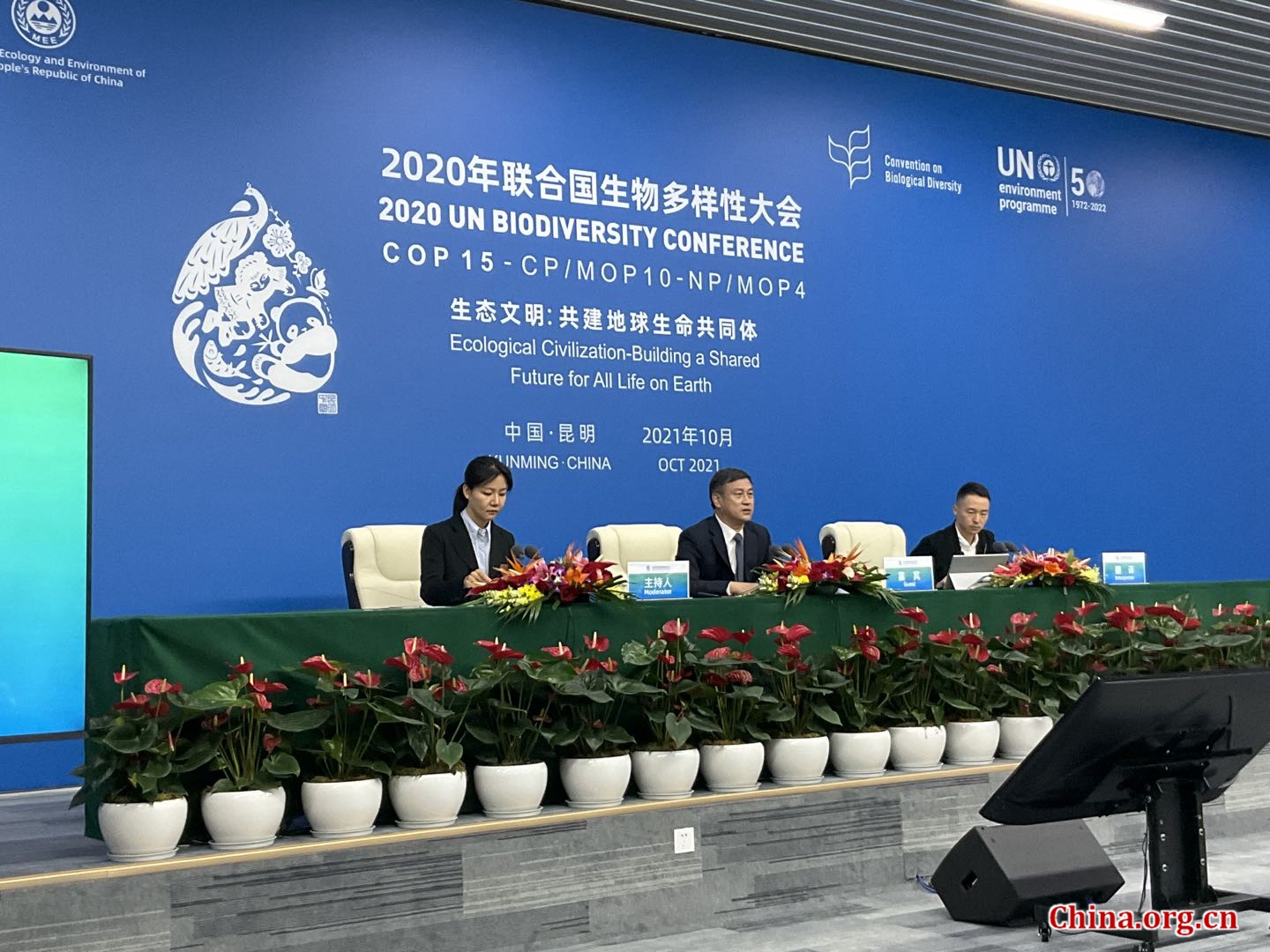COP15 to mark 'new chapter' in biodiversity conservation
- By Cui Can
 0 Comment(s)
0 Comment(s) Print
Print E-mail China.org.cn, October 11, 2021
E-mail China.org.cn, October 11, 2021
The 15th meeting of the Conference of the Parties to the UN Convention on Biological Diversity (COP15) signals the start of a new ambitious and practical post-2020 global biodiversity framework, opening a new chapter in terms of global biodiversity governance, a Chinese official said on Sunday.
The 15th meeting of the Conference of the Parties to the UN Convention on Biological Diversity (COP 15) is set to be held from Oct. 11 to 15 in China's southwestern city of Kunming, Yunnan province.
Themed "Ecological Civilization: Building a Shared Future for All Life on Earth," the meeting is the first global conference convened by the United Nations on the topic of an ecological civilization.

"Building a shared future for all life on earth is not only the theme of COP 15, but also a beautiful wish for our future." Liu Youbin, the spokesperson of the Ministry of Ecology and Environment, said at a news briefing held Sunday in Kunming.
"Biological diversity is critical for human wellbeing and is the foundation upon which human civilization has developed and depends." He said that the Chinese government had attached great importance to the protection of biodiversity.
Liu said that China, as the host of COP 15 conference, has proposed and implemented a number of measures to protect and restore biodiversity. Over the years, China has developed a protected area system with a focus on national parks, and set up the ecological conservation red lines. Efforts have been made to improve legislation, regulation and enforcement in terms of biodiversity conservation.
"China has played an active part in fulfilling its commitment to international conventions and global biodiversity agenda. The awareness and participation of our society in biodiversity conservation has increased." Liu said, "The decline of biodiversity has been basically controlled and the stability of the ecosystem has been obviously improved."

According to David Cooper, the deputy executive secretary of the Convention on Biological Diversity, participants for the first part of the meeting are expected to review the "post-2020 global biodiversity framework" and draw a blueprint for biodiversity conservation in the future. The second part, to be held in person in the first half of 2022, will see broad and deepened negotiations toward an ambitious and practical framework.
"This framework will actually replace the Aichi Biodiversity Targets, which guided our implementation for the last 10 years," he said at the news briefing held Sunday in Kunming.
He also expects that a Kunming Declaration will be adopted at the first part of the meeting, saying it will help "build political momentum on the importance of biodiversity conservation" and demonstrate that the "loss of biodiversity is not waiting for us."
Speaking of the challenges in terms of biological diversity, he particularly mentioned the ongoing COVID-19 pandemic, saying it "has affected both the health of people and biodiversity."
He also pointed out that to better protect biodiversity, more efforts are needed to respond to the climate change. "We need to strengthen our efforts to keep global warming to 1.5 degrees Celsius, since the current commitment of 2030 is not likely to achieve that goal."
"That's why we need to take early actions and ensure that we have political momentum, to respond to these difficult challenges." He said, "We must ensure that all stakeholders are engaged in protecting nature and enhance cooperation among governments."





